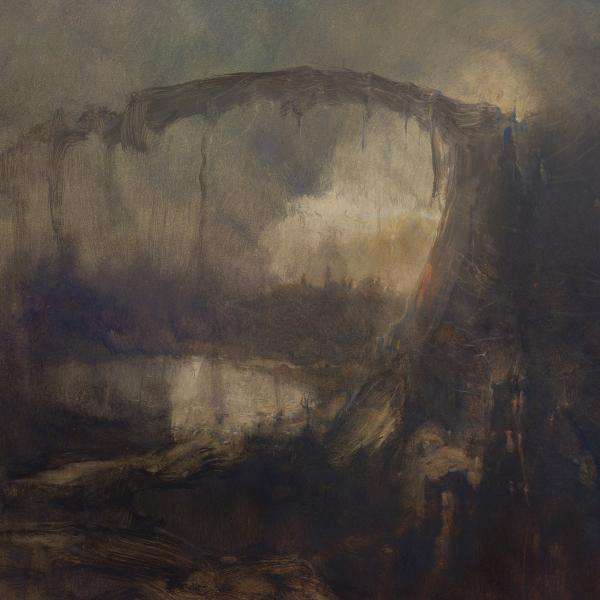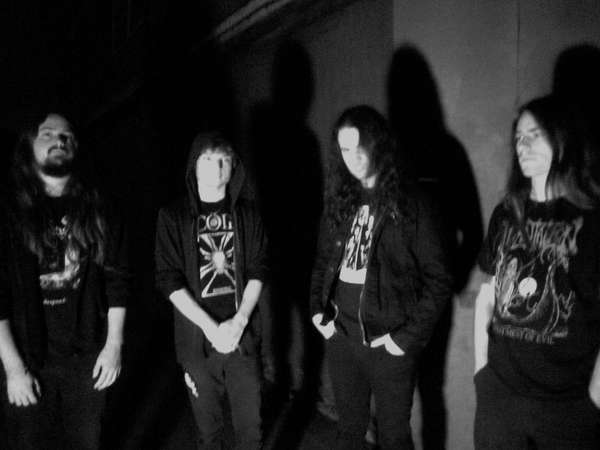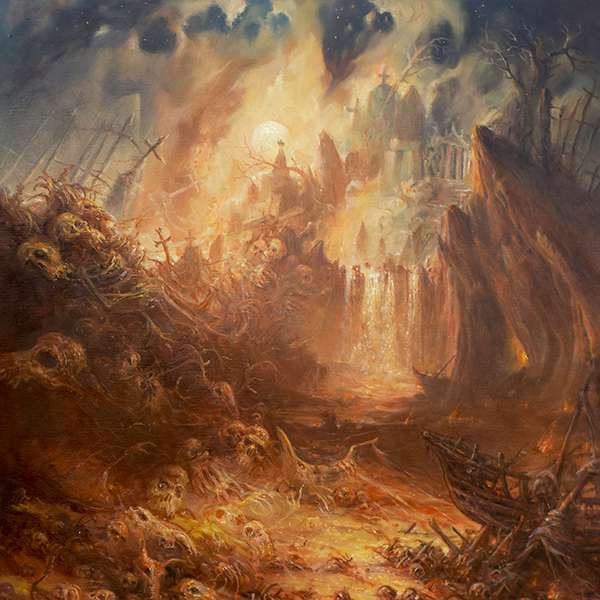Extreme doom/death is not an easy sound to get right. Despite the fact that most bands in the genre will just play slow and release heavy riffs, that is not enough to get someone's attention. There must something deeper in the band's sound in order to give you that feeling of desolation and despair. Lycus is a band that knows how to go about achieving that, and their debut album, Tempest, or even their two early demos unveiled as much. Chasms marks the band's return after two and a half years, seeing them dwell deeper within the gloom of their concepts, constructing towering music once more.
You feel the band's grasp from the very start of “Solar Chamber” as they set a dream state over their music, as if you are hearing a call from a different dimension, or an ancient ritual echoing through time. The band moulds their ambiance in order to accommodate their heavy, doom self. The dreamlike scenery (verging on the nightmare area) soon evolves into more psychedelic and trippy moments, travelling through mournful tones and ritualistic settings, encompassing the identity of Lycus along the way beneath the changes in façade. Certain additions definitely help bring this form to life. The big, clean vocal lines add more depth and detail to the band's mesmerizing soundscapes, while the inclusion of cello (courtesy of Jackie Perez Gratz of Giant Squid and formerly of Asunder) enhances the sorrowful tone of the album, making moments such as “Mirage” go over the top.
The atmosphere, the instrumentation and the background vocals have the task of adapting to Lycus' concepts, and this is not a band that will just take on a single form and stick with it. The bread and butter is still the heavy riffs, pummelling down relentlessly, finding Lycus at their most unforgiving manifestation, taking on destructive approaches and death-drenched moments of colourless ferocity, as is the case with parts of “Chasms.” But, there are moments when the band will travel to the other edge of the doom spectrum, retrieving an emotive, sorrowful quality with which to fill their lead parts. All of their track contain such passages, with the start of “Obsidian Eyes” and the main parts of “Mirage” standing out.
What Lycus do so well is find the right balance, taking on different elements and adjusting them to their sound. One of the aspects that I find quite intriguing is that underneath the heavy riffs and dense ambiance, lurks a more bitter quality, almost a blackened sense. This becomes an integral part of the band's sound, hovering over their lead work, their desolate sceneries and eerie wanderings, and it even becomes more impressive when a more direct approach is needed. The tracks of Lycus are constantly being built, one riff at a time, one heavy drum hit at a time, and there are moments when the tension is high and an outbreak, a furious attack is of the essence. That is when Lycus allow their alternate form to come out, in a blaze of hatred through blastbeats and cut-throat vocals. And then there are times, as is the end of the closing track, where Lycus keep building up the track, and you can sense that this storm is about to break, but it never actually does, with the attack always imminent, but never being fulfilled. Lycus is quite greedy with allowing for catharsis in that instance.
Lycus might be just two album in their career, but their handle on extreme doom/death is that of veterans of the scene. The ability with which they are able to transform their tracks into living entities, craft carefully dense ambiances and methodically allow their music to unfold is excellent. Of course that was all known since Tempest, but in Chasms they are getting even better.






